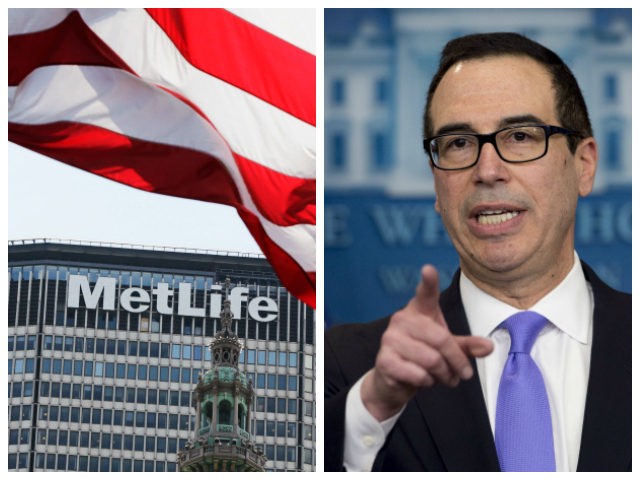The White House may be on the verge of losing its opportunity to easily prevent a huge expansion of the administrative state.
Back in 2014, the Financial Stability Oversight Council labeled MetLife a “systemically important financial institution,” which means the insurance company would be subject to regulations aimed to rein-in Too Big To Fail bank behemoths. MetLife protested the designation, and a federal district court ruled for the company, calling the FSOC’s designation “fatally flawed.”
The Obama administration appealed the decision to the D.C. Circuit Court of Appeals. The court heard arguments last year, which means a ruling could come any day. With two Obama appointees on the three-judge panel, odds are good that the panel could reverse the earlier decision and restore FSOC’s designation of MetLife as TBTF.
That would be a clear set-back for the Trump administration’s efforts to rein in the regulatory state and relieve businesses of the cumbersome rules built around the Obama administration’s Dodd-Frank Act, the post-crisis regulatory reform law. It would set a legal precedent that would make it more difficult to revisit the policies many view as enshrining Too Big To Fail rather than combatting it.
It would also be an unforced error. The Trump administration could avoid it by asking the Justice Department to drop the appeal. Treasury Secretary Steve Mnuchin, who now heads FSOC, could inform the DOJ that the council no longer objects to the district court’s ruling.
Dropping an appeal even this late in the process is hardly without precedent. Back in 2009, the incoming Obama administration voluntarily dismissed a Bush administration appeal of a sentencing decision in a drug case. The dismissal meant that the district court’s sentence, which the Bush administration had argued was too lenient, was upheld.
The case has implications that go far beyond MetLife. In striking down the FSOC designation, the district court cited the failure of the council to engage in cost-benefit analysis. In its appeal, FSOC argued that it could ignore the costs of designation because the Dodd-Frank Act did not explicitly require such analysis. If that view prevails at the Appeals Court level, it would make it far more difficult to challenge regulatory action on cost-benefit grounds.
Dropping the appeal presents the Trump administration with an early opportunity to demonstrate the seriousness with which it intends to pursue the principles enunciated in its executive order on regulatory reform. But the clock is ticking.

COMMENTS
Please let us know if you're having issues with commenting.